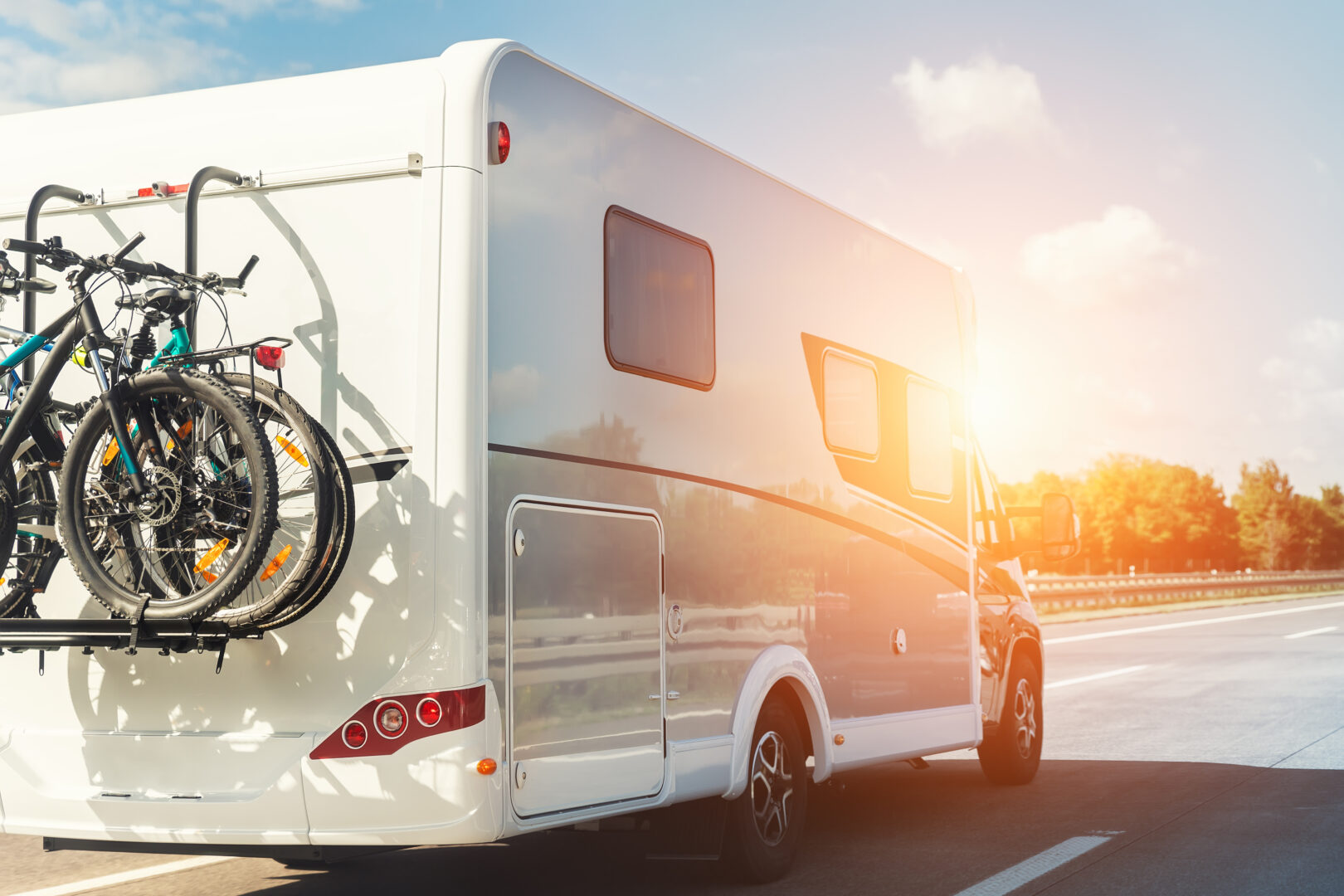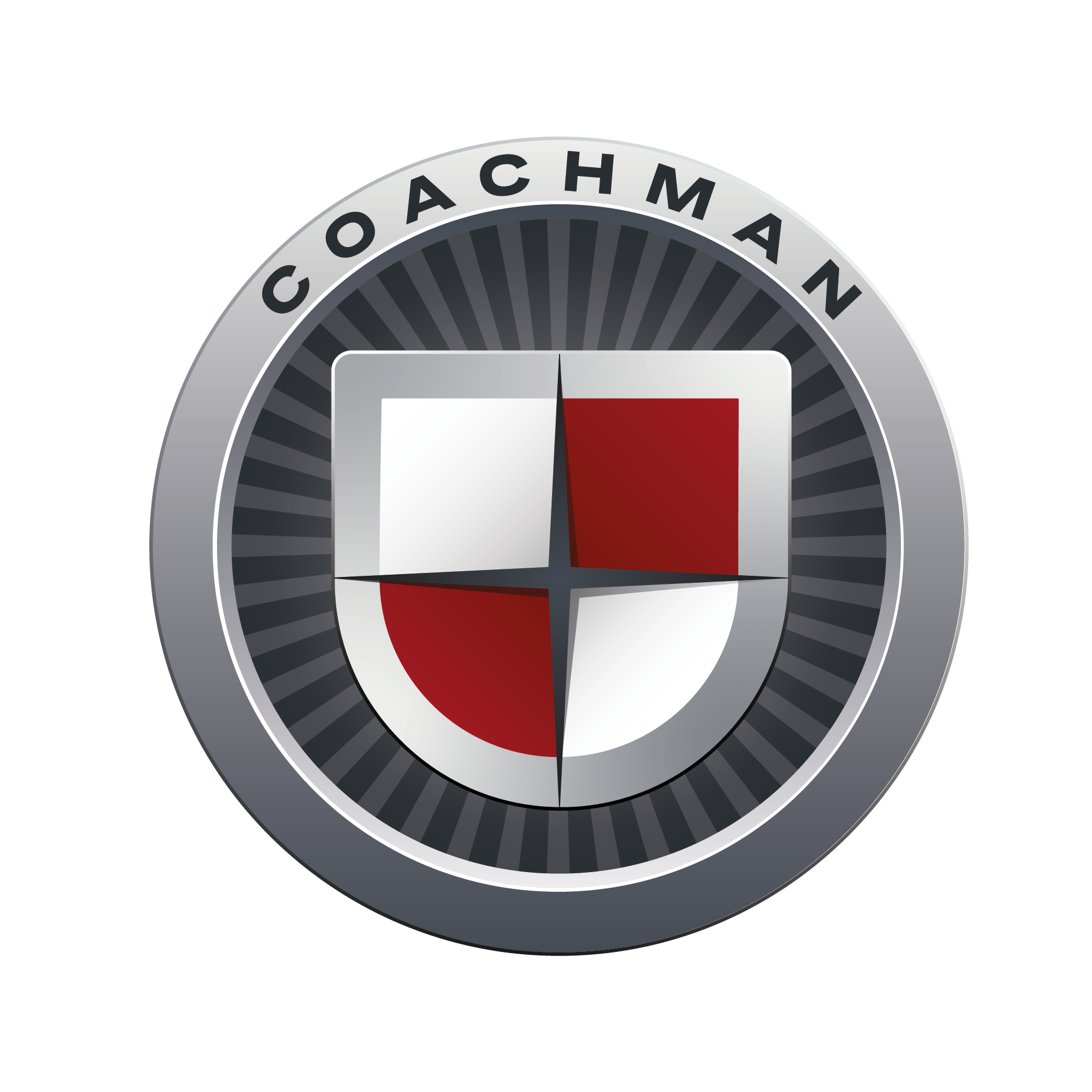A Beginner’s Guide to Owning Your First Motorhome
Posted: 22/10/2024 Author: Jackie ShipleyAs you’ll no doubt have hoped, the motorhome lifestyle is filled with freedom, adventure, the open road and exploration of the great outdoors. All of this at your own pace is a really exciting prospect – particularly if you’re in a Travel Master by Coachman, where comfort and convenience combine to elevate the experience.
However, even for the most eager first-time owners, setting off into this new lifestyle can be overshadowed by a bit of worry around operating, maintaining and living in a unique vehicle. Understanding how to manage the practicalities of your new home from home can make all the difference. This edition of our blog offers our guide – plenty of advice, tips and tricks to help you get the most out of your motorhome life.
Dimensions
Although the principles are the same (ie. steering wheel, brakes, accelerator etc), driving a motorhome is different from driving a car – especially when it comes to size. One of the first things to do when you’ve bought your motorhome is get yourself accustomed to the dimensions of it. Understanding its height, width and length are essential for your comfort and confidence and, most importantly, your safety. Imagine driving on narrow roads, passing under bridges or parking in tight spots when you don’t have a grip of your driving relationship with the dimensions!
Our tip: Do some practice driving in quieter areas before you head out onto busier roads. Use motorhome-specific sat nav systems as these can take into account the size of your vehicle when planning routes for you.
Insurance
Motorhome insurance is an absolute must, there’s no getting around it. However, this type of insurance is not the same as normal car insurance. Make sure you get a policy which has been specifically designed for motorhomes, that’ll cover not just the vehicle but also the personal belongings inside, and which may even offer cover for breakdowns and European travel (if required).
Our tip: Shop around for motorhome insurance – and check if additional perks (such as recovery services, legal cover or alternative accommodation in the event of breakdowns) are offered.
Weight
Your motorhome has a maximum weight it can safely carry, known as its Maximum Authorised Mass (MAM). Exceeding this weight is illegal and so is not only dangerous but may also result in you having to pay fines. The weight includes everything, not just the basic vehicle itself – so that means your passengers, your fuel, your water and luggage… You’ll need to weigh up what you bring onboard.
Our tip: Before your first trip, weigh your motorhome with everything packed. Use a public weighbridge and ensure that the load (ie. all of the non-fixture stuff, your luggage) is distributed evenly across the vehicle.
Water and waste
One of the joys of travelling by motorhome is having access to your own bathroom and kitchen while you’re out on the road. However, having these facilities does mean managing water and waste systems, which can be tricky for beginners. Your motorhome will typically have two water tanks.
Fresh water: Supplies clean water for washing, cooking, and showering.
Grey water: Collects used water from the sinks and shower.
Additionally, the motorhome’s toilet will have a cassette or black water tank to store waste.
Our tip: Get familiar with how to fill the freshwater tank, drain the grey water, and empty the black water cassette. Always dispose of grey water and toilet waste at designated points (usually campsites or motorhome service stations). Keeping the tanks clean and using motorhome-specific chemicals will control odours.
Power
Motorhomes typically have two sources of power – the leisure battery and electric hook-ups. The leisure battery powers the onboard essentials (such as lights, water pump and appliances) when you’re not connected to mains electricity. Many campsites offer electric hook-up points, allowing you to plug in and power additional onboard devices such as heaters and kettles.
Our tip: A surge protector will prevent damage to your electrical systems, so is worth investing in. Your leisure battery has limited capacity, so it’s worth learning how to manage power usage when you’re gone ‘off-grid’. Think about adding solar panels to top up the battery, especially if you plan to wild camp.
Parking
Parking a motorhome is not as simple as parking a car, when you can quickly pull into any spot going. Motorhomes require flat ground for comfort and to make sure that appliances such as fridges function as they should. Many motorhomes come with levelling blocks to help you adjust the horizontal angle when parked on an uneven surface – and if yours doesn’t then you should buy some.
Our tip: Invest in a good set of levelling ramps, and start using them before you need to rely on them. Some modern motorhomes do have automatic levelling systems – but even with these, it’s worth knowing the basics of manual levelling.
Campsites
Motorhome owners are pretty much spoilt for choice when it comes to beautiful campsites across the UK and Europe. Some prefer to embrace the adventure of wild camping, ie. outside of designated areas. However, it’s crucial to understand the rules around wild camping. It’s not permitted everywhere and in England and Wales is generally only allowed with the landowner’s permission. Scotland has more relaxed rules in some areas. In Europe, countries like Norway and Sweden have a long tradition of ‘freedom to roam’ laws that allow wild camping.
Our tip: If you decide to go wild camping, make sure that you have enough power and provisions (water and food) to last your intended stay. Always respect nature and the environment by leaving no waste and minimal to no trace of your visit.
Security
Your motorhome is not only your means of transport but a home. This makes it essential to secure it. Although campsites are generally safe, thefts can happen. Some essential security measures include:
- Wheel clamps
- Steering locks
- Tracking devices
- Alarms
- Immobilisers
Our tip: You should consider fitting extra security such as door locks or window alarms. Installing a tracker is also a good investment, as having one will probably reduce your insurance premium and increase the chance of recovery if you’re unlikely enough to have your motorhome stolen.
Packing
Packing for a trip in your motorhome is a bit different from packing for a hotel-style holiday. Space is limited, and so you’ll need to prioritise multi-functional items, and ensure everything has its place. Some essentials include:
- Levelling ramps
- Electric hook-up cables
- Water hoses and connectors (for filling the freshwater tank)
- Spare gas bottles
- Toilet chemicals
- Cleaning supplies
- Kitchen basics (stackable pans, collapsible utensils, etc)
Our tip: Make a checklist of the essentials and keep it handy for each trip. Over time, you’ll discover what’s useful for your trips and what you’ve taken that’s just hogging space!
Maintenance
Regular maintenance is very important for keeping your motorhome in the best condition you can, and for preventing costly repairs further down the line. This includes servicing the vehicle itself on a regular basis (oil changes, tyre checks, and so on) as well as keeping the living area clean and tidy, the water systems functioning perfectly, and the electrics safe and fully operational. Basic checks include:
- Tyre pressure / tread depth
- Oil and fluid levels
- Battery health
- Appliance safety (especially gas and electric)
Our tip: Create a schedule for routine maintenance and keep track of when services and MOTs (etc) are due. Many motorhome dealers offer service packages, or you can find specialised motorhome mechanics to help.
Community
There’s a friendly motorhome community both online and offline, where you can find an enormous amount of useful advice, support and inspiration. Joining a club (such as the Caravan and Motorhome Club) will give you access to exclusive campsites and discounts. Online forums and social media groups are also great places to ask questions, share tips and swap stories with fellow motorhomers.
Our tip: Ask advice from more experienced motorhome owners, either online or in person at events you attend. Seasoned motorhome owners are usually still enthusiastic and more than happy to share knowledge with newbies.
Plan
Probably the main joy inherent in owning a motorhome is the freedom to travel where and when you like – but it’s always wise to plan your trips, especially during busy seasons when campsites fill up quickly. Research your destination, book your campsites in advance (if possible), and have a clear idea of your route. That said, flexibility is key to the lifestyle. Part of the motorhome experience is the ability to just change your plans as you go, discovering new favourite places, perhaps by chance, and enjoying the journey itself.
Our tip: Use apps and websites that cater to motorhome users for campsite reviews, route planning and information on motorhome-friendly facilities.
Owning your first motorhome can be an exciting adventure that opens up a world of travel possibilities – and it’s all the better if you’re in our luxury Travel Master (and you can easily find you nearest dealership by checking at our website). There’s a lot to learn in the beginning, but the tips we’ve provided here should put you on the right path in earnest. Happy travels!


